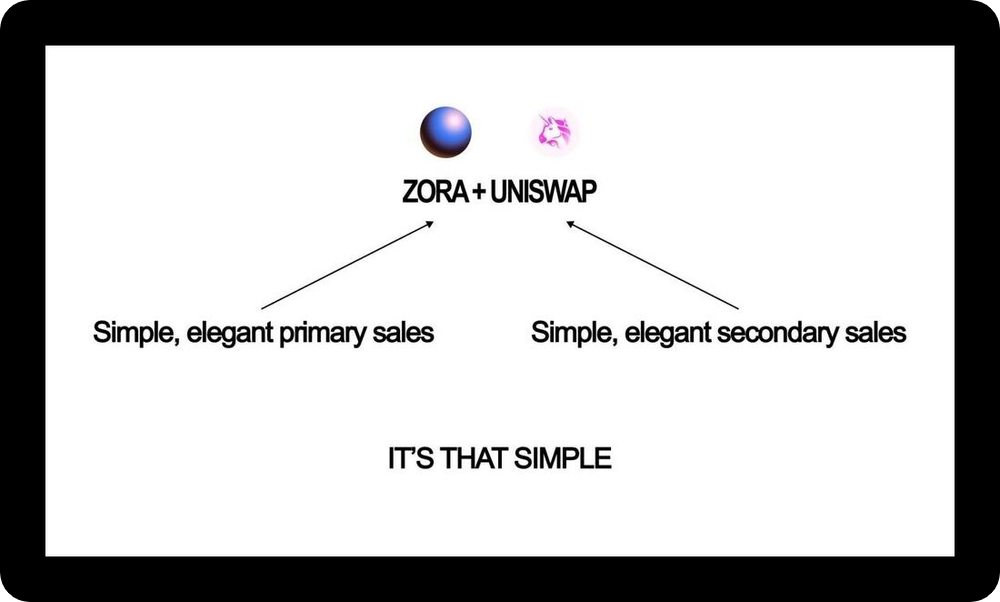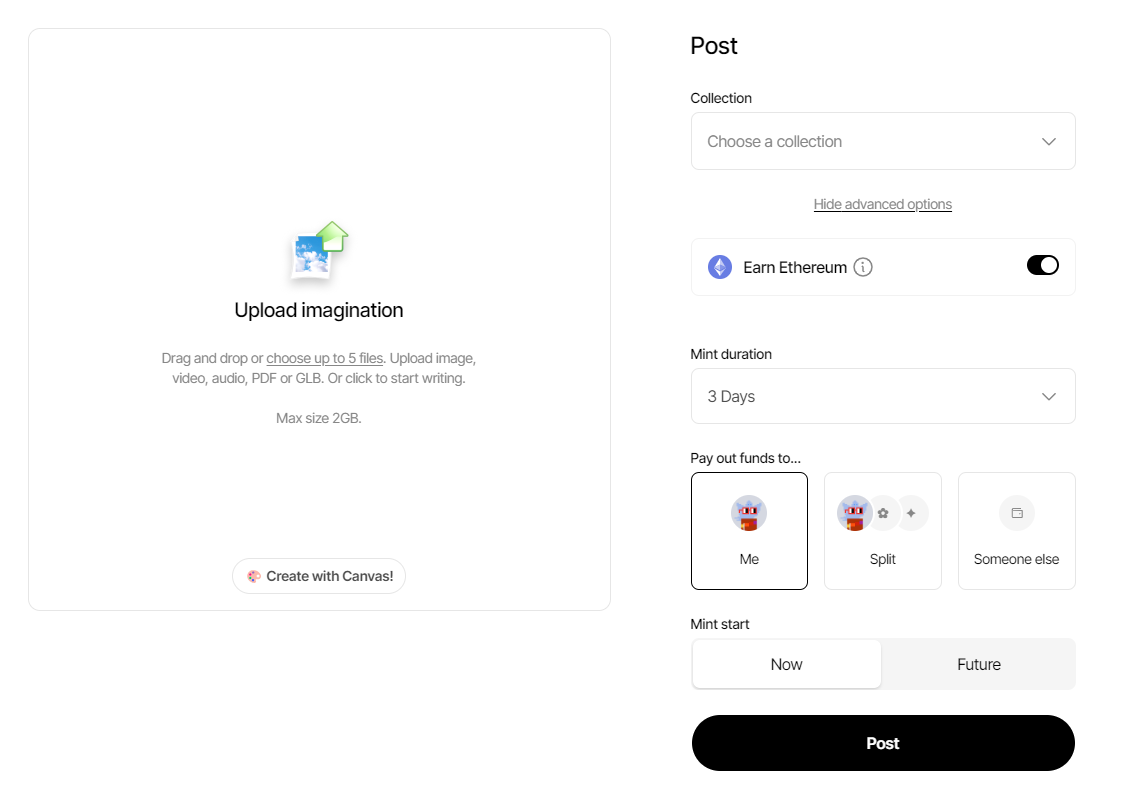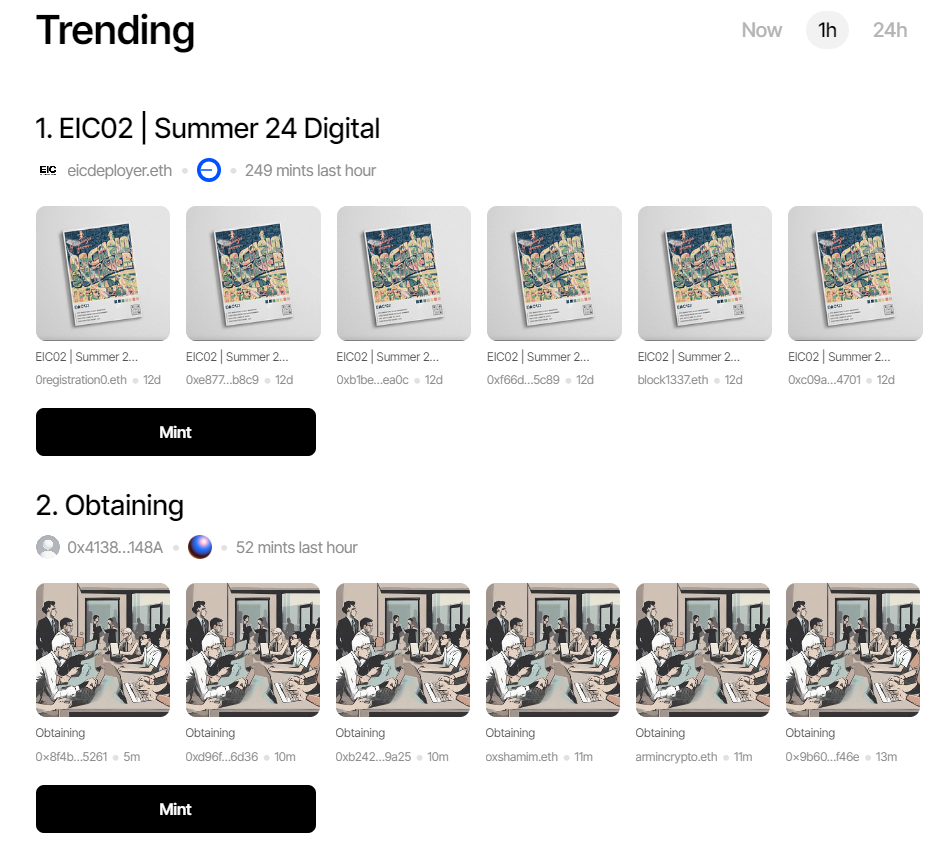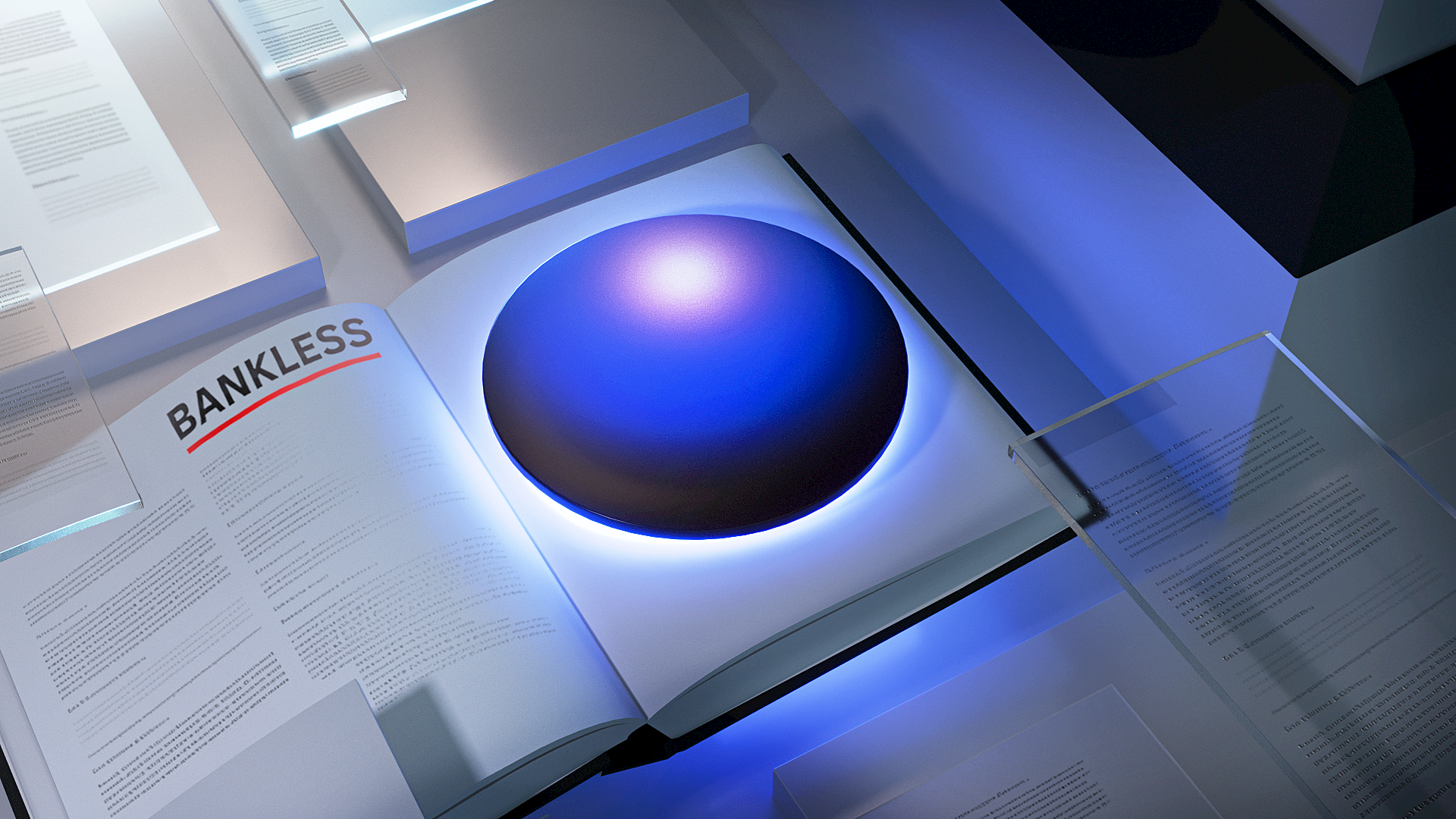Zora Network is a Layer 2 (L2) scaling solution built on Ethereum, designed to make NFT interactions more efficient and cost-effective. Developed by the Zora team, the network aims to alleviate congestion on Ethereum by handling NFT transactions offchain.
Key takeaways
- While it may be smaller than more DeFi-centric L2s, Zora Network has become the dominant L2 when it comes to NFT creating and collecting activity.
- So far, the network has facilitated over 4 million NFT mints and more than $300 million worth of NFT secondary sales.
- Zora Network is also among the cheapest L2s to use today, with its average transaction fee currently around $0.001.
What is Zora?
Zora is a media and marketplace protocol for creating and collecting NFTs, designed as a hyperstructure that operates indefinitely without intermediaries.
The zora.co platform and Zora mobile app, both of which can be used without needing crypto or a wallet, serve as social network frontends for Zora. They enable easy creation and discovery of NFTs across networks like Zora Network, Base, and OP Mainnet, and allow creators to earn a portion of their collectors’ mint fees through Zora Protocol Rewards.
What is Zora Network?
In June 2023, Zora launched the now independently-run Zora Network as an Ethereum L2 built on the OP Stack framework, the foundation of Optimism’s Superchain vision.
The L2 is designed as a bespoke hub for the Zora protocol so Zora creators and collectors can access fast and affordable NFT transactions. The average transaction fee on the network is $0.001, making it an extremely cost-effective environment for artists and their fans.
As such, Zora Network has become a premier destination for creators in the cryptoeconomy. Over 40% of its gas fees are derived from NFT transactions, the highest amount for any L2 active in the Ethereum ecosystem today.
How does Zora Network work?
As an OP Stack chain, Zora Network is an optimistic rollup-style L2.
Optimistic rollups work by batching multiple transactions together and submitting them to the Ethereum mainnet, reducing the load on Ethereum and increasing transaction throughput.
This type of L2 assumes transactions are valid by default and is designed to use a mechanism known as fraud proofs for challenging and proving incorrect transactions. This architecture enables fast and cheap transactions while still inheriting the security and decentralization of Ethereum.
Why Zora Network?
The Zora platform and Zora Network combo have become the leading place for NFT mints in crypto. If you’re an artist looking for an active hub with great tooling for releasing NFTs, this is where you want to be.
On the collector side of things, Zora Network offers extremely inexpensive UX and serves as an ideal foundation for other supported Zora features, like card payments.
Notably, Zora also recently introduced a protocol upgrade that launched onchain secondary markets for its NFT mints. The new system makes Zora's ERC-1155 NFTs wrappable into ERC-20 tokens so that they can be easily bought and sold on Uniswap after mints close.

Additionally, the update also introduced creator rewards for all Zora secondary sales and dropped Zora’s mint fee from 0.000777 ETH t0 0.000111 ETH, making the Zora platform and Zora Network combo that much user-friendly for artists and collectors alike.
How to create NFTs on Zora Network?

- Go to zora.co/create and press "Log in" – it's possible to do so with a crypto wallet (Coinbase Wallet, Uniswap Wallet, MetaMask, etc.) or by continuing with your preferred email
- In the "Upload imagination" tab, upload your desired media file(s) or create a piece from scratch using the "Create with Canvas!" button to enter the Canvas creator interface
- With your media ready, click on the "Collection" tab and press "Create collection" if you don't already have an existing collection on Zora that you want to mint into
- Input your desired collection details, including a title, description, and collection cover photo – then make sure "Zora" is selected in the "Network" dropdown menu
- Click "View advanced options" to further customize your drop – here you can use the default free mint setting or input a specific mint price, set your mint duration and start time, and more
- Once you have everything prepared how you like, press "Post" and complete the creation transaction when prompted
How to collect NFTs on Zora Network?

- Zora makes it possible to collect Zora Network NFTs using ETH from any chain it supports, e.g. paying from Base to collect on Zora Network – that said, it's not necessary to bridge ETH to Zora Network to start collecting there, but consider a fast bridge like Relay if you do want to bridge in
- Next step, find NFTs you want to collect – one way is to use the "Explore" tab, type in a search term, and then use the "Chains" filter to hone in on Zora Network drops
- Another discovery option is to use Zora's "Trending" tab to find trending Zora Network drops – each drop will have a chain logo beneath its title to confirm its originating network, make sure you see the signature Zora orb there to ensure the release is on the Zora L2
- Once you've found a release you want to collect from, press the "Mint" and complete the purchase transaction when prompted – if a drop's mint phase is over, a "Buy" button will appear instead, with secondary liquidity facilitated by Uniswap
How to invest in Zora Network?
Zora Network uses ETH as its native gas token, and no plans for an official Zora token have been announced to date.
However, it’s typical for L2s to decentralize by releasing a token to kickstart governance, so it seems possible that Zora Network may eventually have a native token. If an airdrop does happen, the token will become tradable on exchanges and offer a direct way to invest in the Zora ecosystem.
Top Zora projects
- 🎨 Zora — the NFT platform at the heart of the Zora ecosysstem
- 😄 Enjoy — the first “scenecoin” curation project on Zora Network
- 💎 Gallery — an NFT curation platform
- 📱 Surreal — an NFT discovery app with Zora support
- 🦄 Uniswap — DeFi's leading decentralized exchange
